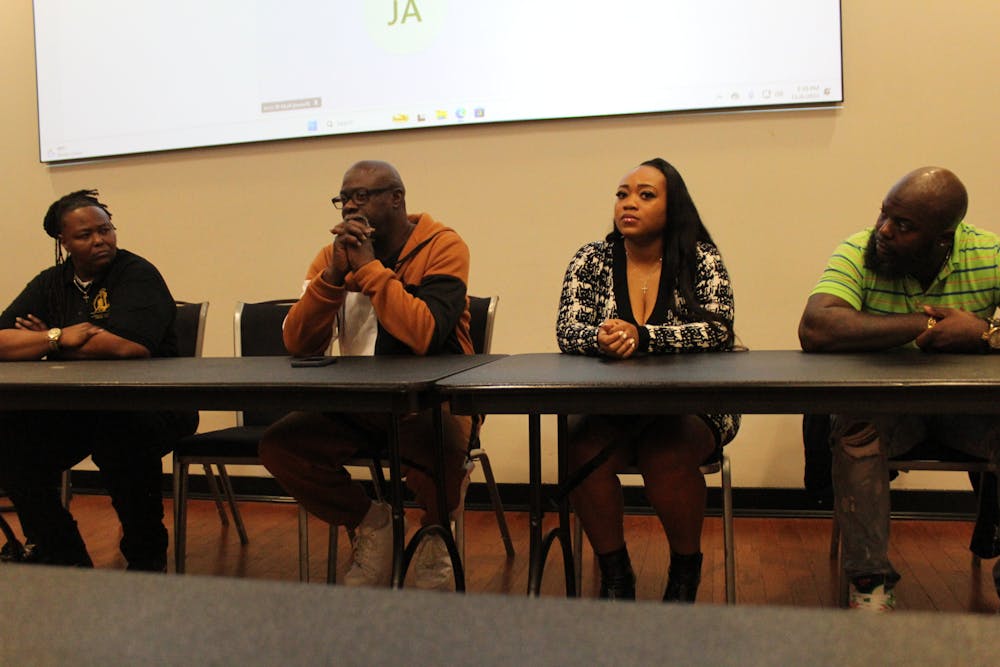Life after incarceration can be challenging. Spending years behind bars often leaves people behind in society, making it difficult to reenter the community. Fortunately, there is a program designed to support people as they work to rebuild their lives after incarceration.
On Nov. 6 at 5:00 p.m., the University Center hosted a panel event featuring T.R.A.P.
“T.R.A.P is the Transition Reentry Adult Program. I myself am a reentry who had drug charges in the early 2000s. I’ve worked in HR for 15 years now, and that experience inspired me to start a nonprofit for reentry,” said Portia Moore, CEO and founder of T.R.A.P.
T.R.A.P is a program focused on helping people successfully reenter society. Reentries often struggle to find resources necessary for a stable life post-incarceration. T.R.A.P provides resources such as therapy, guidance, and even job placements to support reentries in their journey.
“I just try to keep them directed, encouraged, and guide them through the steps of success. We all have different charges, but we’ve been in similar situations,” Moore said.
Several T.R.A.P participants attended the panel. Among them were 63-year-old Chalmers Brown, who was incarcerated for 25 years and has been in the program for one year; Kenyatta Hooper, who served eight months and has been with T.R.A.P for six months; and Carlos Young, who served 15 years and has been with the program for two years. The panelists discussed how T.R.A.P has positively impacted their lives.
“Portia told me she could get me a job, and it made me feel good because I'm one of the older dudes there. At my age, it’s hard to get a job,” Brown said.
Panelists spoke about the unique support Moore provides to T.R.A.P participants.
“A lot of people say they want to help us reenter society, but they’re so far-fetched and out of reach. Portia makes herself accessible. She gives you her number, and she’s not someone who’s just going to leave you on voicemail,” said Young.
Toward the end of the panel, participants offered closing remarks and shared messages for the audience.
“Reentry programs are definitely needed, and I hope that Portia gets more help with her program, making it bigger and greater, with more people and resources supporting her,” Hooper said.
For more information on T.R.A.P, visit their website at www.trapevolution.com.






